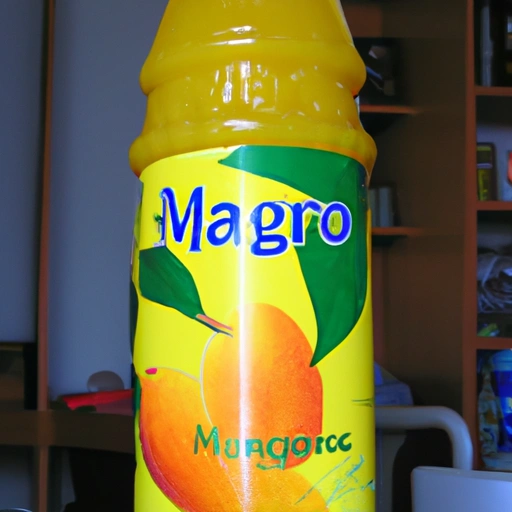Mango Nectar
Description

Mango nectar is a sweet and tropical beverage made from the pulp of ripe mangoes. It is thicker and more substantial than mango juice and often includes added sugar or other sweeteners. Its consistency can range from a light, pourable liquid to a more viscous syrup, depending on the concentration of mango pulp. Mango nectar is popular across the globe and is used in a variety of culinary applications, from beverages to desserts and savory dishes. It's measured in fluid ounces (oz) in American recipes, milliliters (ml) in European recipes, and can also be quantified in cups (US and metric) and liters for larger quantities.
Common uses
Mango nectar is commonly used as a refreshing drink on its own, either served chilled or over ice. It also forms the base for smoothies, cocktails, and mocktails, adding a tropical twist to various beverages. In cooking, it's used to create glazes for meats, dressings for salads, and sauces for desserts. Mango nectar can also be a key component in marinades, providing both flavor and tenderness to proteins. Its sweet and fruity profile makes it a versatile ingredient for enhancing a wide range of dishes.
Nutritional value
Calories
A typical serving of mango nectar (about 8 fl oz or 237 ml) can contain around 120 to 150 calories, depending on the brand and sugar content.
Protein
Mango nectar is not a significant source of protein, often containing less than 1 gram per serving.
Fat
There is generally no fat in mango nectar, making it a fat-free option for those monitoring their intake.
Carbohydrates
Most of the calories in mango nectar come from carbohydrates, primarily from sugars. A serving may contain between 30 to 40 grams of carbohydrates.
Vitamins
Mango nectar can be a good source of vitamin C and folate, although the amounts may vary based on processing and fortification.
Minerals
Some minerals that might be present in mango nectar include potassium and magnesium, but generally in small amounts.
Health benefits
The natural mango pulp in mango nectar is rich in vitamins, particularly vitamin C, which is known to support the immune system. The presence of dietary fiber, albeit in reduced amounts due to processing, can aid in digestion. As a hydrating beverage, mango nectar can also contribute to an individual's daily fluid intake.
Potential risks
Some brands of mango nectar may contain high amounts of added sugars, which can contribute to various health issues if consumed in excess. Additionally, processed nectars may have preservatives and colorings that some individuals prefer to avoid. Those with mango allergies should also steer clear of mango nectar.
Common recipes
Mango nectar is featured in recipes like tropical smoothies, mango sorbets, and exotic cocktails such as the mango margarita. It also appears in mango-based sauces for desserts or as a glaze for baked goods.
Cooking methods
While mango nectar isn't typically 'cooked,' it is used in recipes that may involve blending, freezing, or mixing with other ingredients. It can also be reduced on a stovetop to create a thicker syrup for various uses.
Pairing with other ingredients
Mango nectar pairs wonderfully with flavors like coconut, lime, and other tropical fruits. It also complements spicy cuisines by offering a sweet balance. In savory dishes, it pairs well with proteins like chicken, pork, and seafood.
Summary
Mango nectar adds a touch of tropical sweetness to a wide array of dishes and drinks. With its vibrant flavor and versatility, it's a favorite amongst home cooks and professional chefs alike. While it offers some nutritional benefits, it's best enjoyed in moderation due to its sugar content. Whether incorporated into a morning smoothie, used as a glaze for a summery barbecue, or stirred into a refreshing cocktail, mango nectar is an ingredient that transcends cultural boundaries and brings a burst of sunshine to the palate.